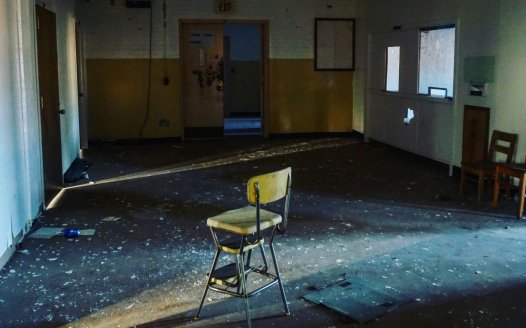Religious education GCSE will lose its appeal when the exam is toughened up
Posted: Fri, 3rd Feb 2012 by Keith Porteous Wood
The Churches love to tell us how "popular" religious studies are in schools. Keith Porteous Wood suspects the popularity may have more to do with the course being ridiculously easy, rather than any desire for a deeper understanding of religion.
The Churches love to tell us how "popular" religious studies are in schools. According to one story on a Christian website young people are "clamouring" for deeper understanding of religious perspectives.
The website reports:
"The number of students taking the Religious Education GCSE had increased for the twelfth year in a row, according to figures out today from the Church of England. ... Some 188,704 took the RE GCSE this year, up 3.5 per cent on 2008 figures. Results showed that 73.1 per cent of the total RE candidates achieved a grade between A* and C. RE is in the top ten league table, measured by the number of students taking the course, and growing at a faster rate than mathematics and history.
"Nick McKemey, the Church of England's Head of School Improvement, said the "relentless" growth of the RE GCSE course demonstrated a need for adequate resources and time to be invested in its teaching. Young people are clamouring for a deeper understanding of religious perspectives on issues of the day and how moral and ethical questions are considered by the major faiths," he said."
So that's what it's all about – getting more money from the taxpayer to train even more religious teachers for schools.
But is all this really because young people are fascinated by religion, or could it be anything to do with the course being ridiculously easy, and the 'short course' option taking only half the time of a regular GCSE and involving no homework?
Well, certainly the exams watchdog Ofqual thinks so. They are about to review GCSEs in English, geography, religious education and history – amid concerns that the subjects have become too easy.
The review follows an investigation by The Daily Telegraph which uncovered evidence of exam boards giving secret advice to teachers on how to achieve better grades for their pupils.
Ofqual want to "make sure that the standards set and the study requirements are what we expect" following suggestions that "some GCSE qualifications may permit narrowing of the expected course of study".
Exam boards offering geography, history, RE and English literature must "make clear the full course of study required of candidates" and ensure that the assessments test pupils on the whole subject range, the watchdog warned. The syllabus in each of the four subjects could be re-written substantially in time for pupils beginning their courses in September.
Almost a quarter of papers graded A* or A last year, about three times as many as did so when the exams were introduced in 1988. Earlier this month, a senior official with the Assessment and Qualifications Alliance, England's largest exam board, admitted to MPs that grades may have risen in part because examiners are likely to give pupils "the benefit of the doubt".
I very much expect we'll see rather less 'clamour' among young people to include religious education in their exams if they can no longer achieve top results with minimal effort.







